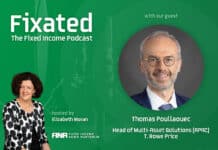
Global investment manager Franklin Templeton has issued its midyear outlook, which presents market and investment views for the second half of the year and examines uneven global recovery from COVID-19.
The outlook highlighted how emerging COVID-19 variants are adding new economic headwinds in parts of the world, while other countries are sharply rebounding amid vaccination rollouts and heavy fiscal and monetary support. Combining this backdrop with supply chain frictions leads to an intriguing second half of 2021.
Key views across the asset categories
- The remainder of 2021 will likely prove challenging with potential key themes of guarding for inflation, searching for income, seeking quality companies as well as looking beyond stocks and bonds.
- Fixed income activity cannot avoid looking out for inflation and income. The opportunities across corporate credit markets will be selective and uneven, and we believe active management will be important. Investors should consider sector, duration and quality rotation.
- Equity discussions converge on “quality” with investors across styles and market capitalisation ranges believing the “junk trade” is over and quality is the priority beyond structured definitions of growth and value. Different managers offer different definitions of quality companies, helping investors navigate the market while analyzing supply chain disruptions, economic cycles and growth.
- Real estate takes us directly to the impacts of inflation. The straightforward mechanism of raising rents under improving economic conditions allows properties to adapt to economic supply and demand. This mechanism makes commercial real estate particularly interesting in the second half of this year.
- Infrastructure has regional catalysts and a big nod to sustainable investing and environmental, social and governance (ESG). Significant initiatives around the world are driven from social and government motivations that will allow infrastructure to have diversification benefits beyond the value of the investment. These benefits will be longer term than the second half of 2021.
INFLATION DRIVES NEED FOR ACTIVE FIXED INCOME
Brian Kloss, JD, CPA, Brandywine Global
We expect the remainder of 2021 will be challenging. Returns will be harder to come by, but should still be positive, in our view. Overall, we are constructive on corporate credit, especially the shorter end of the curve. Pro-cyclical sectors, such as commodities, basic materials and health care technology, provide interesting opportunities. We believe active management will be key, as the opportunities across corporate credit markets will be selective and uneven. Investors will need to use all the tools in their toolkits, including sector, duration and quality rotation.
Also read: Millennials Targeted By Blossom For Bond Investments
Nicholas Hardingham, CFA, Franklin Templeton Fixed Income
We maintain our bullish view on emerging market debt as an asset class and favor hard-currency emerging markets over local-currency emerging markets, with most of the local rates still trading at historic lows and real rates either negative or extremely low. With interest rates expected to rise in 2022, we do not see the value in adding longer-duration holdings without attractive levels of spread to compensate, and therefore retain our bias for high-yield versus investment-grade issuers.
QUALITY, QUALITY, QUALITY REMAINS CENTRAL TO EQUITIES
Jonathan Curtis, Franklin Equity Group
Recent volatility aside, we believe technology enjoys powerful secular and cyclical tailwinds which are positive for the long term and near term. We believe the sector is likely to grow much faster than inflation, has pricing power (owing to its leverage to productivity), is asset light and will enjoy deflationary tailwinds as knowledge workers take advantage of more flexible work arrangements to relocate to lower-cost regions.
Alan Bartlett, Templeton Global Equity Group
Our idea of “compound value” is rooted in the belief that value arises from the union of multiple elements, which can include price, quality, growth and changes/ events through time. Looking across the globe, we currently like European equities, as the eurozone is one of cheapest global regions and home to leading industrials and consumer companies with upside to reopening and post-pandemic recovery. We also find Japan attractive, as companies are restructuring and improving balance sheets, and driving a focus to improve return on equity.
Zehrid Osmani, Martin Currie
We focus on specific stock characteristics rather than regional assessments, but at the geographic level, we happen to find more upside potential in equities in Europe and emerging markets rather than in the US equity market. In terms of sectors, US President Joe Biden’s infrastructure spending program has the potential to significantly boost the economic momentum in the United States, thus potentially shaping a long positive industrial cycle with positive implications both for the US and global economic outlook.
Manraj Sekhon, CFA, Franklin Templeton Emerging Markets Equity
Emerging market (EM) equities have continued their ascent so far this year, though the pace has moderated from the momentum of 2020. EMs in general have shown sustained resilience in managing and adapting to COVID-19. It’s worth noting the growing divergence between the perceived challenges surrounding these markets and their demonstrated structural strengths. We highlight three key areas that warrant attention— demand, sentiment and inflation.
ESG AND INFLATION MAY BENEFIT ALTERNATIVES
Tim Wang, Ph.D., Clarion Partners
We believe 2021 marks the beginning of a new real estate market cycle. As demand continues to recover across most markets and property sectors, rising occupancy and higher effective rents should drive higher net operating income, supporting higher dividend and property appreciation. In our view, we believe that real estate—income with growth—ought to be an important part of portfolio allocation strategy given accelerating economic growth and the reflationary environment.
Nick Langley, ClearBridge Investments
Investors should benefit from global stimulus plans as policymakers agree on aggressive multi-decade carbon reduction targets. This investment will allow infrastructure and utility assets to earn stable and often regulated returns, off capital deployed into such areas as lower-carbon generation, strengthening of electricity grids and lower-carbon fuels such as hydrogen. While there are nuances to how environmental, social and governance efforts will influence different areas of infrastructure, we believe it will pay to have some tactical ability.

































